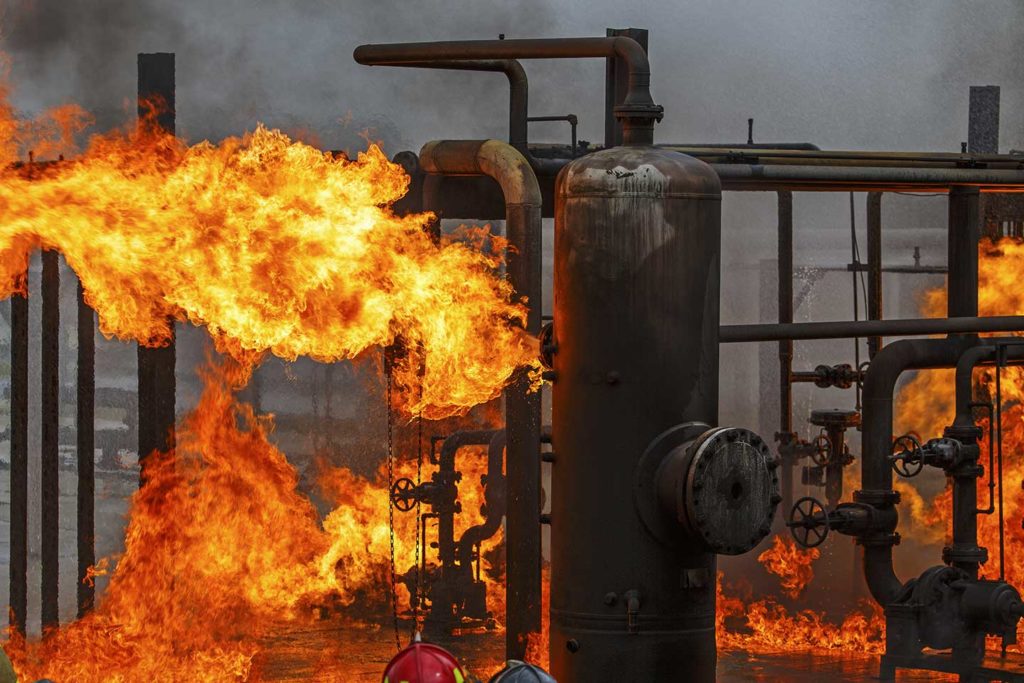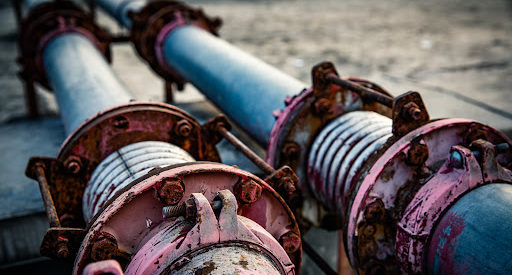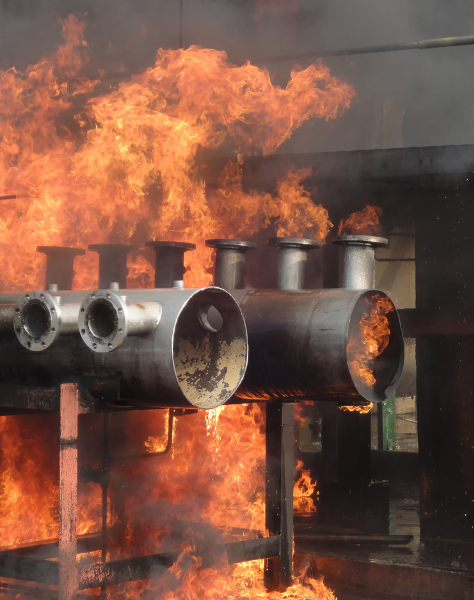Louisiana Pipeline Explosion Lawyer

Oil and gas pipelines are vital infrastructure to American businesses, homes, and the economy as a whole. Oil destined for refining and use in everything from cars to jets, as well as natural gas that’s vital for heating homes and businesses in the winter, are sent through these pipes daily to power the engine of American progress.
However, the fuel traveling through these pipelines is dangerous stuff. Occasionally, natural gas and oil pipeline explosions rock the communities where they happen, causing property damage, fires, injuries, and sometimes, death. These explosions can happen for a variety of reasons, but they’re almost always the result of poor maintenance or outdated systems.
If you or a loved one has been harmed in an oil or natural gas pipeline explosion, you deserve answers for your pain, suffering, and monetary damages. Call the experienced explosion injury lawyers at Gordon McKernan Injury Attorneys for a free consultation today.
Click to Contact Our Pipeline Explosion Injury Lawyers Today
Types of Pipelines in Use in the United States
There are many types of pipelines in use today: water and sewer pipes form the basis of our plumbing grid, and electric and internet cables are often run through underground pipes for protection from the elements. The two most common types of pipelines in American industry, however, are oil pipes and natural gas pipes.
Oil Pipelines
Used for transporting crude oil as well as refined oil between oil fields and refineries in Louisiana and other states, oil pipelines are a vital part of America’s energy infrastructure. Oil pipelines are usually made of steel or plastic, and range from a few inches in diameter to as big as four feet.
Most of these pipelines run the bulk of their lengths underground, surfacing only at pump stations and valves. However, some pipelines, like the Trans-Alaskan, feature miles of pipe above ground.
Natural Gas Pipelines

These pipelines, made of carbon steel and ranging in diameter from a few inches to five feet, are used both in commercial and residential applications. Natural gas pipelines carry pressurized natural gas to distributors, who send it on to consumers’ homes and businesses.
Natural gas is used in a variety of applications, ranging from heating and cooking to generating electricity. This gas is a vital part of America’s energy grid, and its continued passage through thousands of miles of pipelines ensures our nation’s continued energy independence.
Pipeline Accidents, Explosions, and Injuries
Due to the sheer number of pipelines, carrying a variety of different explosive or flammable materials, accidents are bound to happen. The National Conference of State Legislatures reports that America has
- 2 million miles of natural gas pipelines
- 321,000 miles of gas transmission lines
- 175,000 miles of hazardous liquid pipelines
- over 100 active plants producing liquid natural gas
These pipelines carry a variety of extremely volatile and combustible materials that require the utmost care during transport. Any of the following can cause explosions causing thousands in damages, injuries, and death; long-lasting fires; and further explosions:
- Crude oil
- Diesel
- Gasoline
- Jet fuel
- Liquid gas
- Liquefied natural gas
- Propane
America’s Aging Pipeline Infrastructure
Unfortunately, over half of the pipelines crisscrossing America are over 50 years old, and many are showing extreme wear and tear. While some companies are doing the needed work to replace old pipes, many more adopt a more cavalier attitude that increases the risks of pipeline fires, explosions, and other accidents.
Not only are many of our oil and gas pipelines old, many of them are made with material that is prone to rust, corrosion, and ultimately failure—making an explosion or rupture even more likely. Some experts estimate that over 2.5 million miles of pipeline need to be repaired or replaced as soon as possible to fully mitigate the risks of an explosion or other type of industrial accident.
When pipeline companies fail to maintain their pipes, they put the communities and businesses that their pipelines run through at risk. If they fail to properly maintain their pipelines and cause an explosion, those communities and businesses deserve compensation for the damages they’ve suffered.
Pipeline Failure

While gas pipelines can be safer day-to-day than using large trucks to transport flammable materials, they require regular maintenance to ensure their continued safety. After decades of use, a pipeline’s metal walls can corrode and weaken, leading to an increased risk of catastrophic failure. That failure can come in many forms, including
- Toxic exposure to members of the community
- Burn injuries
- Pipeline explosions
- Property damage
- Wrongful death
- and others
Because it leads the nation in energy production, Louisiana’s pipelines are heavily used, more likely to fail, and more likely to cause a deadly accident. The owners and operators of these pipelines should be well aware of the risks their aging pipes place on the people of Louisiana, yet many of them do nothing to mitigate those risks.
A Lack of Federal Oversight Leads to a Variety of Failures
Even though the dangers of unmaintained pipelines are clear, the federal government has failed to publish a unified set of standards on the United States’ network of pipelines crisscrossing its surface. This lack of federal oversight means that there is little financial incentive for companies to be proactive in maintaining their pipes, which leads to a higher risk of explosions and other failures. These failures can be caused by a variety of factors:
- Improper installation of pipes and fittings
- Aging meters, mains, pipelines, gas lines, fittings, and valves
- Improper maintenance
- Defective pipelines
- Failure to respond to gas leaks
- Improper training of workers or excavators
What Should I Do If I’ve Been Hurt by a Gas Pipeline Accident?

If you or a loved one has been hurt by a pipeline accident—whether working at the job site or as a member of the community—you could be entitled to financial compensation. Pipeline explosions cause thousands, if not millions, of dollars in damages, pain and suffering, and death.
However, pipeline owners are loath to pay out the damages they owe for their negligence. If you’ve been harmed, you need an experienced pipeline accident attorney on your side to hold those companies to account for their inaction. Call the Louisiana pipeline injury lawyers with Gordon McKernan Injury Attorneys for a free consultation at today. We won’t charge you a dime until we win or settle your case. That’s the G Guarantee!
Louisiana Pipeline Explosion Accident Lawyer Near Me
888.501.7888
How It Works
Filing a claim with Gordon Mckernan Injury Attorneys is easy! Simply follow the steps below.
1
Get Your Free Consultation
2
An Attorney Will Reach Out
3


